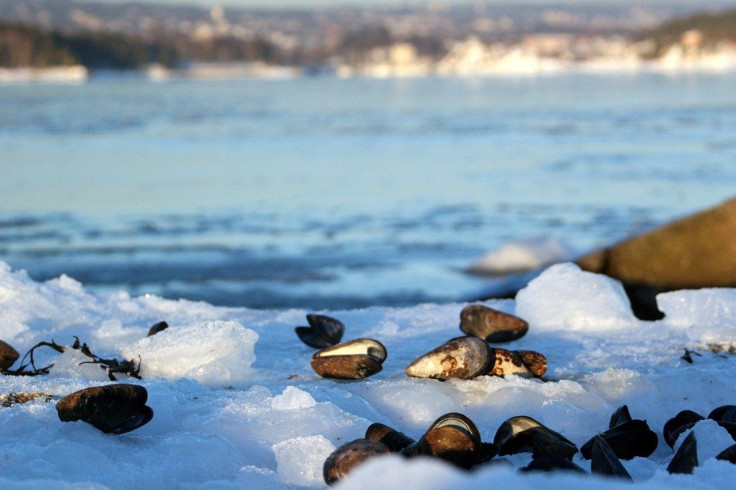Coast Guard, Good Samaritan Rescue 18 People Stranded On Floating Ice In Lake Erie
KEY POINTS
- The group was rescued via helicopter and airboats
- Fortunately, no one needed medical attention
- People have been advised to take precautions when having activities on ice
The U.S. Coast Guard, with the help of a Good Samaritan, has successfully rescued 18 people from a piece of ice that separated from land close to Catawba Island in Lake Erie. Authorities already warned the public about the possible risk prior to the incident.
Authorities began rescue efforts Sunday afternoon after an MH-65 Dolphin helicopter from Air Station Detroit noticed nearly 20 people who were on an ice floe or a large pack of floating ice, the U.S. Coast Guard noted in a news release. These people were reportedly looking for a way back to the land.
A Coast Guard helicopter and a Station Marblehead airboat were used to rescue the individuals. A "Good Samaritan" with an airboat also helped with the operations.
#BREAKING Mass rescue of 20 people underway with @USCG Station Marblehead airboat and Air Station Detroit helicopter near #CatawbaIsland in #LakeErie. Ice floe broke away while people were snowmobiling, etc. Good Samaritan with airboat also assisting. #GreatLakesWinterSafety
— USCG Great Lakes (@USCGGreatLakes) February 6, 2022
In total, 18 people were rescued from the ice floe, seven of whom were rescued via helicopter, four by the Coast Guard airboat and the others by the Good Samaritan's airboat. Fortunately, no one needed medical attention after the incident, the Coast Guard noted.
#BREAKING Final number rescued from ice floe near #CatawbaIsland in #LakeErie today was 18; none needed medical attention. Photo below taken by Coast Guard helicopter crew. More details in attached news release at: https://t.co/NZcrCLU7mg #GreatLakesWinterSafety pic.twitter.com/9VrwW7DQQe
— USCG Great Lakes (@USCGGreatLakes) February 6, 2022
The National Weather Service (NWS) already posted a warning Saturday, urging the public to avoid going on the ice on Lake Erie on Sunday as wind gusts were expected to reach 25 miles per hour, thereby increasing the chances of ice drifting away from the shore. Calling it "dangerous ice conditions," the agency noted that cracks had already formed offshore and that it could cause people to get trapped on the ice.
The agency shared satellite footage Sunday showing that ice chunks had indeed drifted away from Lake Erie's shoreline.
"We were warning about this potential yesterday," NWS Cleveland noted in a tweet. "We strongly urge people not to venture out onto Lake Erie this afternoon!"
We were warning about this potential yesterday, and can see ice chunks drifting away from the southern shoreline of Lake Erie on satellite. We strongly urge people not to venture out onto Lake Erie this afternoon! #OHwx https://t.co/7wpNiAD1Mv pic.twitter.com/7eBOpp1FPE
— NWS Cleveland (@NWSCLE) February 6, 2022
The Coast Guard reminded people who are going out on recreational activities on the ice to "take precautions, not chances."
"There's no such thing as safe ice, but people can mitigate their risks," Lt. j.g. Jeremiah Schiessel from Coast Guard Sector Detroit said in the Coast Guard's news release. "Always be sure to tell someone where you're going and when you expect to be back. Great Lakes ice is unpredictable, and conditions can change fast."
The agency also gave some important reminders that people should keep in mind when going on such activities. They include dressing properly for the water temperature instead of the air temperature, wearing a life jacket, carrying ice picks in case they need to "self-rescue" and bringing a "reliable form of communication."
In early January, authorities in Wisconsin also rescued more than 30 people who were left trapped on a chunk of ice that had separated from the shoreline off of Point Comfort in Green Bay.

© Copyright IBTimes 2024. All rights reserved.






















